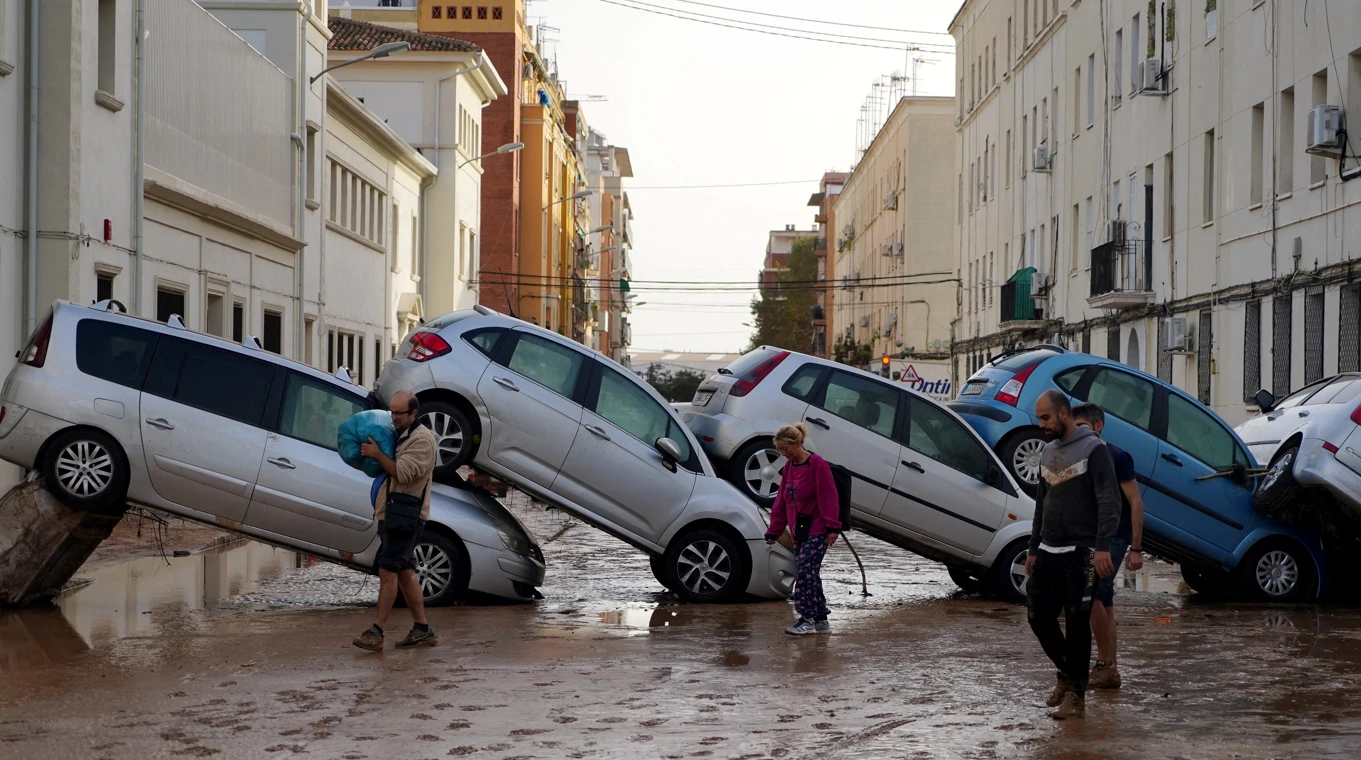The devastating rainfall that triggered deadly floods in Spain this week was 12-percent heavier and twice as likely compared to the world before global warming, a network of climate scientists said Thursday.
World Weather Attribution (WWA), a global group of scientists, did not directly link the exceptional rainfall with climate change but said it was "most likely" the cause.
At least 158 people have been killed since a tremendously powerful Mediterranean storm this week dumped masses of rain over Spain, with eastern regions hardest hit.
The national weather service said torrential rains drenched areas of Valencia with a year's worth of precipitation in a matter of hours.
WWA said downpours on October 29 were "about 12 percent heavier and twice as likely" compared to the pre-industrial climate that was 1.3 degrees Celsius cooler.
"Historical weather observations indicate that one-day bursts of rain in this region are increasing as fossil fuel emissions heat the climate," it added.
WWA is a pioneer in attribution science, which uses peer-reviewed methods to quickly assess the possible influence of climate change on extreme weather events.
This allows a comparison of a drought or flood today against simulations that consider the climate before humanity started burning fossil fuels in the 1800s.
WWA looked at weather data -- in this case one-day rainfall events over Spain -- and extrapolated trends back to the pre-industrial era to see how this type of event has changed over time.
The Spain analysis was "not a full and detailed attribution study" because scientists did not additionally use climate models to simulate the rainfall in a world without human-induced warming.
This would have allowed them to directly attribute -- or not -- the damaging rainfall on October 29 to climate change.
However, they say climate change "is the most likely explanation as a warmer atmosphere can hold more moisture, leading to heavier downpours".
The United Nations said countries were falling "miles short" of making the necessary cuts to planet-heating emissions needed to curb global warming.
Emissions, largely from the burning of fossil fuels, have kept climbing even as rising temperatures unleash increasingly damaging and costly extreme weather across the globe.


